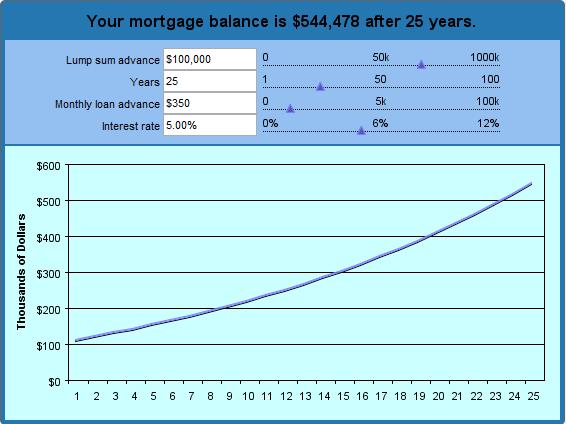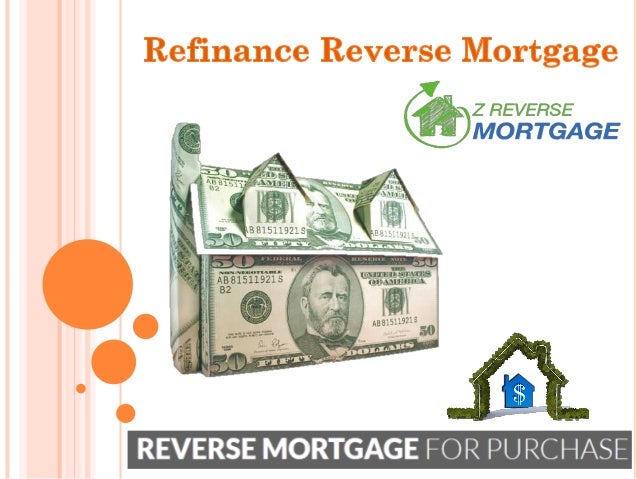

But no matter how the money gets distributed to you, the lender adds interest each month to the balance you owe (the principal).
#REFINANCE REVERSE MORTGAGE CALCULATOR SERIES#
The lender may send you the funds from the reverse mortgage in one lump sum payment, a series of monthly payments, or some combination of those. With a reverse mortgage, you borrow money from the lender, based on the amount of equity you have in your home. Your equity grows, and the balance of what you owe goes down over time. Part of your payment goes towards the principal (the amount you borrowed) and part goes to paying the interest. With a regular mortgage, you borrow a lump sum of money and make monthly payments to your lender to pay it back. How reverse mortgages are different from regular mortgages, home equity loans, and home equity lines of credit (HELOCS) Generally, you, your spouse, co-borrower, or your estate repays the loan when you die, sell your home, or move out. Typically, the money you get through the reverse mortgage is tax-free and won’t affect your Social Security or Medicare benefits.

have enough funds to keep paying expenses related to the property because you’re still responsible for taxes, insurance, repairs, and homeowner association fees.have paid off a substantial amount of your mortgage.live in the property, which has to be where you live most of the time.To qualify for the most common reverse mortgages, you must The fees and other costs to borrow money this way can be higher than other alternatives like a home equity loan or home equity line of credit. That means you could come up short if you want to move to a smaller home, an assisted living facility, or to another locale to be closer to family.Ī reverse mortgage can be an expensive way to borrow. You could use up your equity, so you get nothing when you or your estate eventually sells the home. Generally, a reverse mortgage must be paid back when you die or move from the home.

This can use up much – or even all ─ of your equity.Ī reverse mortgage can limit your options down the road. Your debt keeps going up (and your equity keeps going down) because interest is added to your balance every month. While the amount is based on your equity, you’re still borrowing the money and paying the lender a fee and interest. (Your equity is how much money you could get for your home if you sold it, minus what you owe on your mortgage.) While a reverse mortgage lets you access your equity without selling your house right away, it can be financially risky:Ī reverse mortgage increases your debt and can use up your equity. With a reverse mortgage, t he amount of money you can borrow is based on how much equity you have in your home. If you’re 62 or older, you might qualify for a reverse mortgage. Things to Consider Before You Get a Reverse Mortgage.Identity Theft and Online Security Show/hide Identity Theft and Online Security menu items.Unwanted Calls, Emails, and Texts Show/hide Unwanted Calls, Emails, and Texts menu items.Money-Making Opportunities and Investments.Jobs and Making Money Show/hide Jobs and Making Money menu items.Credit, Loans, and Debt Show/hide Credit, Loans, and Debt menu items.Shopping and Donating Show/hide Shopping and Donating menu items.


 0 kommentar(er)
0 kommentar(er)
